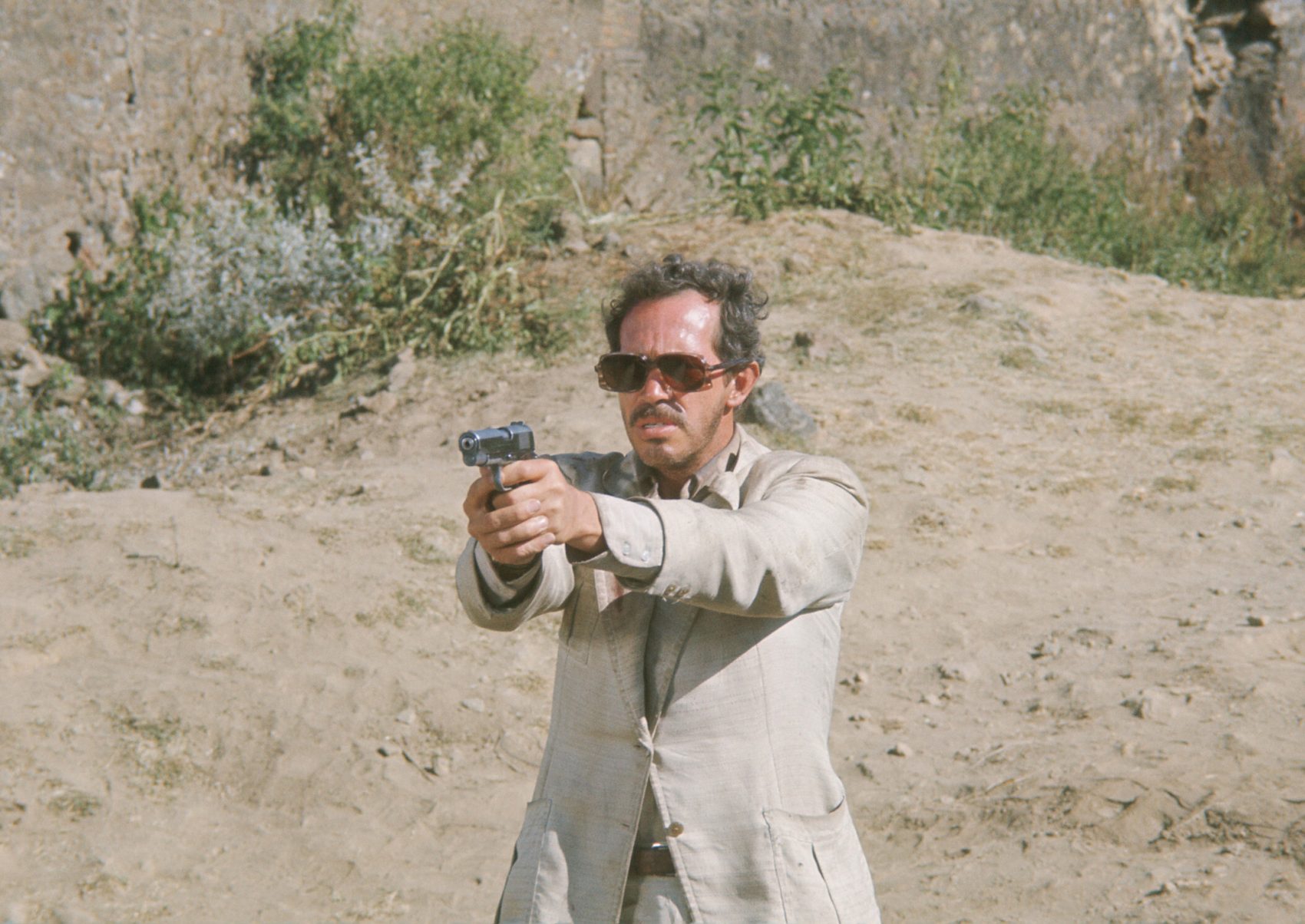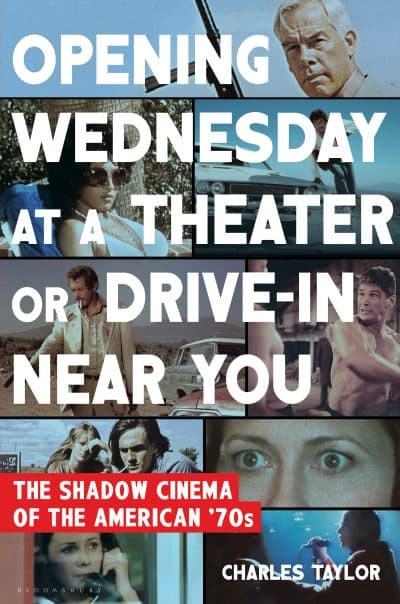Advertisement
'Shadow Cinema' Turns Fond Eye On Complexities In '70s B-List Movies — And Gives Side-Eye To Today's Cinema

Lexington native Charles Taylor grew up at the movies, literally. His father was head usher at the long-gone Central Square Theatre in Cambridge, “and dad took me to the pictures I wanted to see, whether the silly MPAA ratings system thought I should see them or not.”
Taylor’s terrific new book, "Opening Wednesday at a Theater or Drive-In Near You: The Shadow Cinema of the American ‘70s," salutes a bygone era in filmmaking, when scrappy B-movies still talked to the audience like grownups and the good guys didn’t always have to win. The author — a longtime film critic for the Boston Phoenix, Salon and sundry other publications — will be back in town on Wednesday night to host a discussion at the Coolidge Corner Theatre following a rare 35mm screening of Sam Peckinpah’s rotgut, oft-maligned masterwork “Bring Me the Head of Alfredo Garcia.”

We’ve all read plenty (some of us perhaps too much) about the Me Decade’s towering A-List classics: your “Godfathers,” “Nashvilles” and “Chinatowns.” Taylor’s book instead focuses on smaller films that sort of fell by the wayside. Lean-and-mean little pictures like “Prime Cut,” “Hickey & Boggs,” and “Hard Times” told tales as terse as their titles — scrappy, low-budget stories about private eyes and bare-knuckle boxers that still hold up shockingly well today, thanks mostly to an uncomfortable honesty that accidentally turned them into time capsules of our exhausted Watergate America.
“I use the phrase Shadow Cinema because these were not the movies that people think of when they think of the era,” Taylor explained over the phone earlier this week. “But they were nonetheless part of this time when it was possible to make films and address them to an adult audience. Things didn’t have to be wrapped up neatly. They didn’t have to have happy endings. Compared to what mainstream movies are now, they’re unimaginable.”
Taylor has a punchy prose style that evokes the aura of these unassuming B-pictures while thoughtfully grappling with their larger sociopolitical concerns. Whether discussing the grisly Vietnam allegories of Robert Aldrich’s “Ulzana’s Raid” or the gentle, inclusive humanism of Jonathan Demme’s “Citizens Band,” he’s able to keep one eye on the bigger picture while also communicating the sheer pleasure of watching a tale well-told. When you're done with the book you have a list of titles you’ll want to rent as soon as possible.
And it all builds up to “Bring Me the Head of Alfredo Garcia,” Peckinpah’s notoriously nasty tale of doomed grave-robbers south of the border. “I think it’s by far the deepest of any of the films I chose to write about,” Taylor admits. “That’s why it finishes the book.”
The burned-out Peckinpah — a mere 49 years old but at least twice that in whiskey-and-cocaine years — torched whatever bridges he had left in Hollywood with this filthy, surrealistic waking nightmare starring Warren Oates as a piano-playing, perpetual failure making a deal that earns his damnation with some creepy, white-collar devils. It’s a movie about a not-so talented artist selling out to very bad men who happen to have all the money, and it’s impossible not to trace the autobiographical pangs of Peckinpah’s self-loathing as Oates wears his director’s signature sunglasses and mustache throughout.
Taylor calls it a movie about the failure of masculinity. "I think that’s what a lot of Peckinpah’s movies are about. He made these violent films with macho characters and the thing that has been assumed is that there was no intelligence or poetry or emotion in those movies. There was a great deal. But sometimes there were things in his movies that were stupid and misogynist and he didn’t help himself with some of the public comments that he made.”
Indeed, by the time this particular picture was released Peckinpah’s persona had even been parodied on “Saturday Night Live,” with John Belushi pretending to be the drunk director while repeatedly punching an actress played by Gilda Radner.

“The tragedy of the film is that it’s about a fellow who is put in situations with other men where violence and force is the common coin,” says Taylor. “It’s the tool that he has to deal with the situations in which he finds himself, and it’s also the thing that separates him from everything in life he wants, including finally the love of a woman. I think that’s why the film is a tragedy. It’s made by someone who knows this.”
The critic is hardly as optimistic about the future of moviegoing. "I think American commercial moviemaking is almost dead as something that is going to be of lasting interest beyond an adolescent audience," he sighs. "Until two months ago I would have said an adolescent male audience, but I think with the success of ‘Wonder Woman’ we have to say to an adolescent audience. I think that movie is a better version of the type of things that are being made — and I love Gal Gadot and Chris Pine together — but it’s essentially junk."

